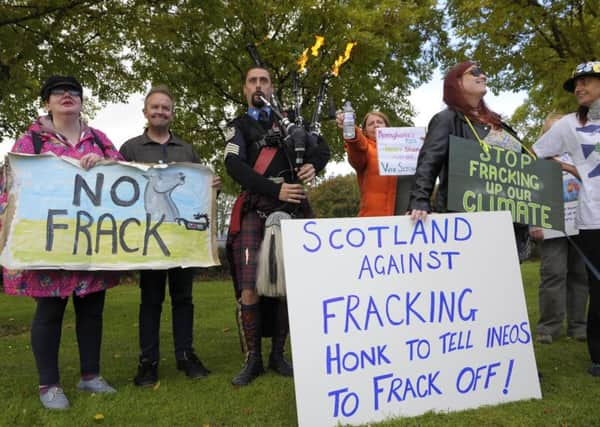Ilona Amos: Is 'deformed' geology an insurmountable obstacle for fracking?


It has been used commercially for several decades, but modern technology has sparked a boom in the US over the past few years. The move has brought cheap gas, shedloads of jobs and seen production of crude oil almost double.
It has also sparked a rush by other countries to emulate this success, including here. Reports from the British Geological Survey suggest there are trillions of cubic feet of shale gas beneath parts of the UK, and even more substantial reserves offshore. However, the agency doesn’t estimate how much could be recovered – nor whether it is financially viable to do so.
Advertisement
Hide AdAdvertisement
Hide AdDespite the UK government’s push to exploit this resource by dishing out fistfuls of licences, operations have not seen much success to date. Energy company Cuadrilla was forced to suspend test fracking in 2011 near Blackpool, in Lancashire, after two earthquakes of 1.5 and 2.2 magnitude hit the area. A subsequent investigation found it was “highly probable” drilling had triggered the tremors.
Meanwhile, anti-fracking campaigners claim evidence from sites in the US and elsewhere show the practice poses major dangers to human health and the environment. As well as seismic activity caused by drilling, fears have been raised over contamination of water supplies, flaring of methane and injection of wastewater deep underground.
The latest blow for would-be frackers comes from an eminent Scottish academic, who claims the UK’s dash for unconventional gas has come 55 million years too late. Professor John Underhill, chief scientist at Heriot-Watt University, says the very nature of the country’s complex geology means fracking is not a viable option and its potential to replace dwindling North Sea reserves has been “overhyped”.
Apparently folds and faults in rock formations, caused by movements of the earth’s tectonic plates millions of years ago, mean key onshore areas that have been identified as harbouring shale oil and gas deposits are likely “unsuitable” for commercial exploitation. “In locations where fulfilment of some of the criteria have led to large potential deposits, uplift and the faulted structure of the basins are detrimental to its ultimate recovery,” he says.
These include the West Lothian Oil Shale site, which went through an additional period of deformation around 290 million years ago. This, the professor tells us, further compounds its structural complexity.
His warning, that “it would be extremely unwise to rely on shale gas to ride to the rescue of the UK’s gas needs”, will undoubtedly come as bad news for developers.
So where does this leave us? Fracking is not allowed in Wales and Northern Ireland and a moratorium has been in place here since 2015 while ministers weigh up the pros and cons – a decision is expected soon.
Perhaps experts at Warwick Business School are right when they predict that UK’s geology will “prove fundamental” to the future of shale gas production. Michael Bradshaw, professor of global energy, suggests the size of the prize may not be worth the effort in Scotland, so prospectors may focus all attention on England.